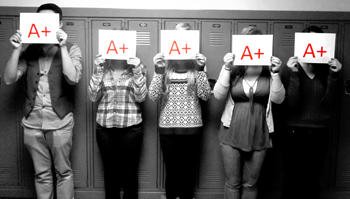Job Search Strategies for New Graduates
June 4, 2014 Leave a comment
Success! Congratulations as you’ve worked hard and toiled in the classroom for 4+ years and now it’s time to see it all come to fruition as you enter working adulthood! The job market is a huge entity and for those walking in, it can be a cold splash in the face for even the most seasoned job-seekers, much less new grads just getting their feet wet! Below are 10 common mistakes of job hunters (new ones in particular) and following that are 10 tips to get your search going so that you can stand out!

Tips for a Successful Job Search
Ten Common Mistakes of the (New) Job Hunter
1) Not Being Proactive
2) Using the Internet AS your job search
3) Not Networking Effectively
4) Not Tailoring Resumes and/or Cover Letters
5) Misusing/under-utilizing the Internet
6) Failing to Follow Up
7) Setting Expectations Too High
8) Not Appearing Professional
9) Not Taking the Job Interview Seriously
10) Not Utilizing Your College’s and/or professional Career Services
Now, Ten Tips to get you Really Moving in your Job Search!
1. Research, research and then research some more!
As with any job search plan, one of the most important steps is to do the up-front research. If you have a degree in a chosen field, it’s best to research opportunities and get a general feel as to what the requirements are to be and how organizations differ from one another. Sure, Google and Microsoft (Bing) specialize in search, but are they the same? No. Ford and Chevrolet both manufacture and sell automobiles, but are the two companies the same? No. It is your ‘job’ to be able to distinguish an organization before approaching. Today, especially, there’s an inordinate amount of information available for job-seekers, and to an employer, there’s no excuse you didn’t use it in identifying what makes them unique.
2. Get your resumes (yes, plural!) ready.
Make them specific and tailored for each position and industry. Use your headings, categories and descriptions to give your resume flow and ‘a story’ that speaks to each employer. A generic resume smells of desperation and/or indifference and when an employer has hundreds, if not thousands, it can go by unrecognized. If it doesn’t ‘speak’ to the role and the nuance of each organization it gets put in the ‘circular file,’ damned for eternity.
3. Just as important, get your cover letters to speak.
Make them so they are not the generic – “as a new grad, I am really interested in a position at your organization… etc., etc….” This doesn’t SAY anything. Use the cover letter to speak to them. Connect your experience, skills and, most importantly, interest to what they do. Remember, the organization is NOT thinking about you. They are only interested if they can be thinking about HOW you can help them. Your letter needs to sell them on that fact!
4. For grads, be sure to visit your college’s career services office and/or seek professional assistance.
Utilize these resources for career counseling, job and internship listings, access to recruiting programs, and career networking. The staff is typically seasoned in helping you get your materials in order and preparing you for your search. Remember, the ‘job’ of the career office is to help PREPARE you for your job search, not to conduct it for you so you need to be proactive and willing to do the leg-work. If already out of school and graduated, hiring on a career services professional can be a great way to get objective, resourceful guidance and assistance that can be a huge investment.
5. Being connected and online is your friend.
Allows for real-time information and connection. Obviously, there are a number of online job boards for job seekers, and using your time to keep abreast of these; job listings, postings, job search tips and career advice, is important as a puzzle piece to your job search. As a side benefit, but just as important, keeping your social networks active and in the loop at the same time.
6. Promote and clean-up your on-line presence and profiles.
Use sites like LinkedIn, Facebook and Twitter to your advantage in self-branding. Many companies now use these social networks to advertise, meet and recruit. Connecting with prospective employers via social networks could be a way to get in the door. Many organizations now gauge the aptitude of a prospective employee not only by their professional and educational experience, but their online biographical presence. What you say and how you present yourself online can, and will, translate into real-world perception. Whether positive or negative is up to you!
7. Take advantage of recruiting and career fairs.
These are a great way to strike up mini informational interviews with organizational representatives that are trying to sell you their organization. These are great venues to ask questions, pick up valuable advice and then use that in your marketing of self! Bring copies of your resume to distribute as this is a terrific way to connect and position yourself with potential hiring managers, not to mention any information gleaned can then be used in a follow-up cover letter and interview.
8. Package yourself to promote!
Learn the basic etiquette of job-hunting which includes dressing appropriately, learning the importance of a good handshake, eye contact and thank you notes and emails. Take advantage of the plethora of career articles online which outline all the basic requirements of the job search process.
9. Network extensively and politely, professionally, but shamelessly, USE them!
You cannot have too many people in your corner when you are looking to secure a job, and networking plays a critical role in the process. Networking can be both formal and informal. Friends, family, neighbors, alumni, even people you meet on the bus or at a store are potential conduits in generating job openings.
10. Volunteering or taking an internship is good and good for you.
A great way to ‘test’ an area of interest and bolster your skills. These programs, some of which can be paid, are a valuable way to gather on-the-job training which can work to make your resume stronger and give you tangible experience. In some cases, if all goes well, many organizations will consider offering you a position on a permanent basis based on what they’ve seen. As a volunteer or intern, it can help put your finger on the pulse of an organization and you can position (see research above!) yourself immediately for interviews should job openings occur.




Please Share Us!